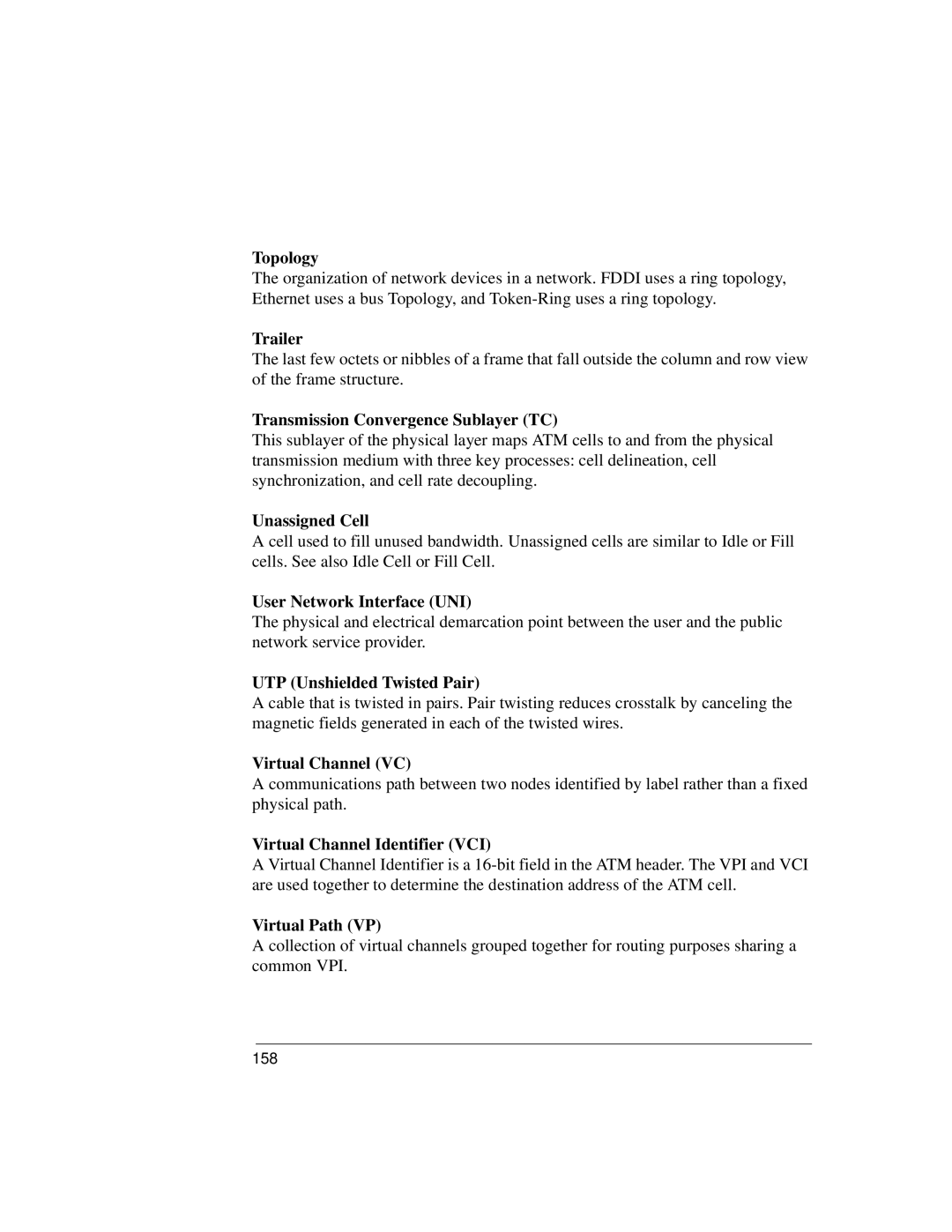Topology
The organization of network devices in a network. FDDI uses a ring topology, Ethernet uses a bus Topology, and
Trailer
The last few octets or nibbles of a frame that fall outside the column and row view of the frame structure.
Transmission Convergence Sublayer (TC)
This sublayer of the physical layer maps ATM cells to and from the physical transmission medium with three key processes: cell delineation, cell synchronization, and cell rate decoupling.
Unassigned Cell
A cell used to fill unused bandwidth. Unassigned cells are similar to Idle or Fill cells. See also Idle Cell or Fill Cell.
User Network Interface (UNI)
The physical and electrical demarcation point between the user and the public network service provider.
UTP (Unshielded Twisted Pair)
A cable that is twisted in pairs. Pair twisting reduces crosstalk by canceling the magnetic fields generated in each of the twisted wires.
Virtual Channel (VC)
A communications path between two nodes identified by label rather than a fixed physical path.
Virtual Channel Identifier (VCI)
A Virtual Channel Identifier is a
Virtual Path (VP)
A collection of virtual channels grouped together for routing purposes sharing a common VPI.
158
